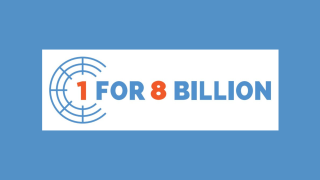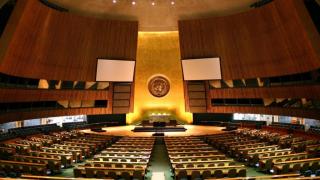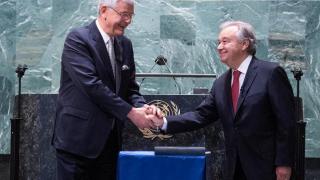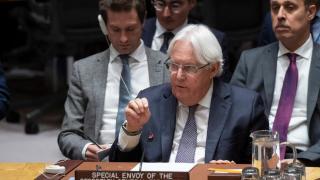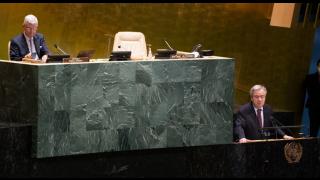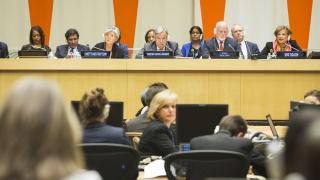
UN Secretary-General-designate, António Guterres, has backed 1 for 7 Billion's calls for strong civil society engagement with the United Nations, expressed at an informal meeting of the General Assembly.
Held on 19 October, the informal meeting was an opportunity for states to put forward their priorities to the next UN leader before he takes office on 1 January 2017. The 1 for 7 Billion campaign - which UNA-UK co-founded - made a statement on behalf of its 750 NGO supporters, asking Mr Guterres to be "the one for seven billion: a champion of transparency and meaningful civil society participation in all aspects of the UN’s work".
In a direct response, Mr Guterres stressed that “civil society is a key instrument for the success of today’s UN”, particularly in a global political climate “where governments are finding it more and more difficult to do their job”. He observed that civil society had emerged as an important actor across the UN's activities, from preventing conflicts to promoting human rights, and concluded:
Dialogue and cooperation with civil society will, I’m sure, be a central aspect of the activities of the UN in the next few years, not only because of my own activities, but because of the concerns that all the UN bodies have, making sure that partnership becomes a key element in solving global problems.
UNA-UK welcomes Mr Guterres' recognition of the fundamental role played by civil society across the UN's work. His response has signalled fertile ground for 1 for 7 Billion's upcoming 'People's Agenda', a compilation of civil society priorities for engagement with the UN featuring the views of our partners and supporters around the world.
The statement, delivered by 1 for 7 Billion representative William Pace, applauded the work of member states in realising the more open, transparent selection process which the campaign has advocated for the past three years. 1 for 7 Billion noted that this had led to unprecedented dialogues between Secretary-General candidates, member states and civil society.
1 for 7 Billion stressed that the new Secretary-General must be able to select the strongest leadership team of women and men from all the world’s regions, appointed not as a result of compromises and political deal-making, but on the basis of merit alone. The campaign underlined that the UN Charter mandates a merit-based system of appointment that secures the “highest standards of efficiency, competence, and integrity” and obliges states not to influence the Secretary-General in discharging their responsibilities. The campaign also called for the early implementation of the roadmap Mr Guterres has promised for achieving gender parity at all levels of staffing.
UNA-UK and its 1 for 7 Billion partners will continue their efforts to stimulate further debate in the General Assembly on a longer, non-renewable term for the Secretary-General, which would enhance the independence of the office, a proposal supported by a growing number of member states and UN experts.

